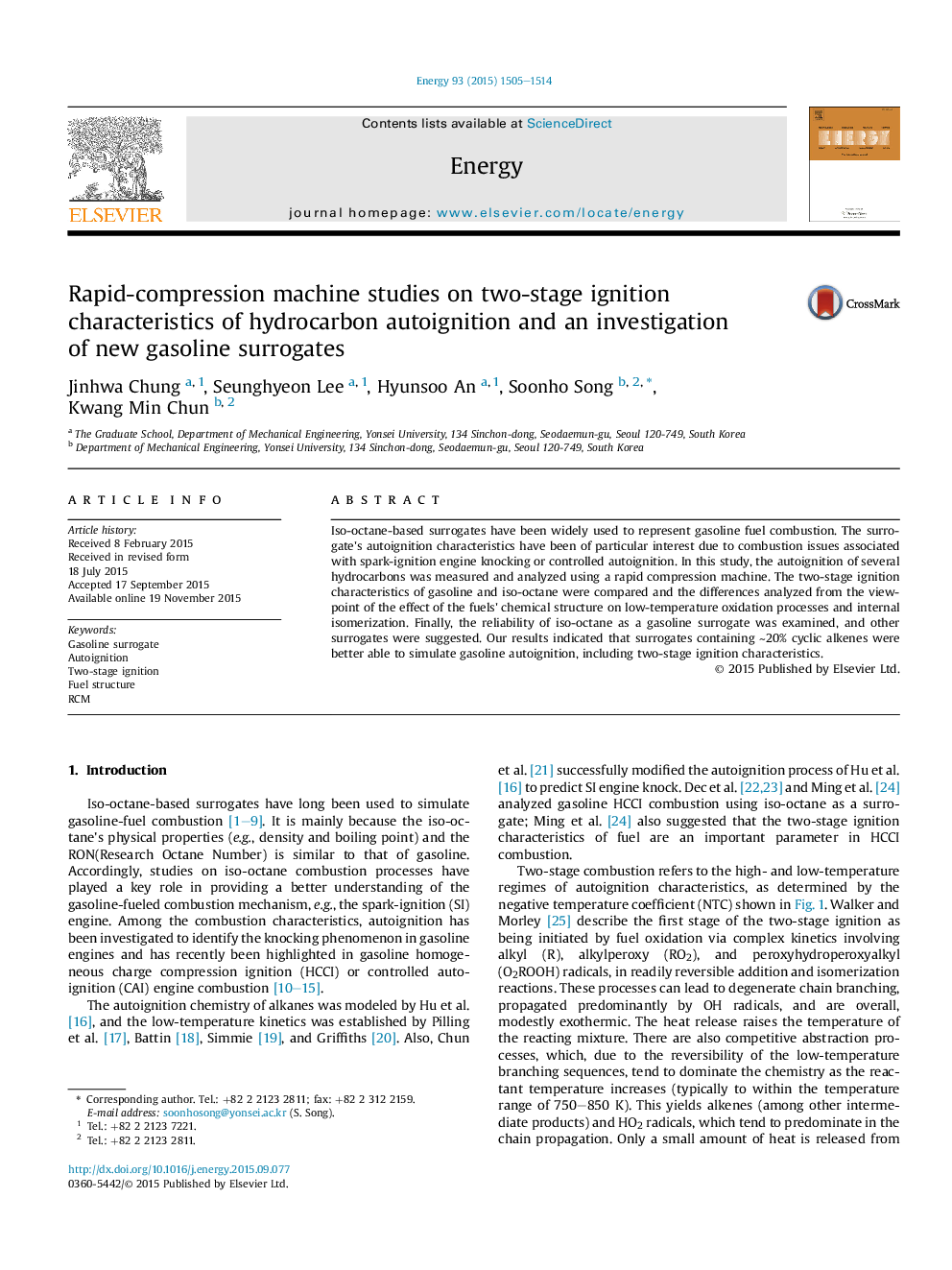| Article ID | Journal | Published Year | Pages | File Type |
|---|---|---|---|---|
| 1731594 | Energy | 2015 | 10 Pages |
Abstract
Iso-octane-based surrogates have been widely used to represent gasoline fuel combustion. The surrogate's autoignition characteristics have been of particular interest due to combustion issues associated with spark-ignition engine knocking or controlled autoignition. In this study, the autoignition of several hydrocarbons was measured and analyzed using a rapid compression machine. The two-stage ignition characteristics of gasoline and iso-octane were compared and the differences analyzed from the viewpoint of the effect of the fuels' chemical structure on low-temperature oxidation processes and internal isomerization. Finally, the reliability of iso-octane as a gasoline surrogate was examined, and other surrogates were suggested. Our results indicated that surrogates containing â¼20% cyclic alkenes were better able to simulate gasoline autoignition, including two-stage ignition characteristics.
Related Topics
Physical Sciences and Engineering
Energy
Energy (General)
Authors
Jinhwa Chung, Seunghyeon Lee, Hyunsoo An, Soonho Song, Kwang Min Chun,
